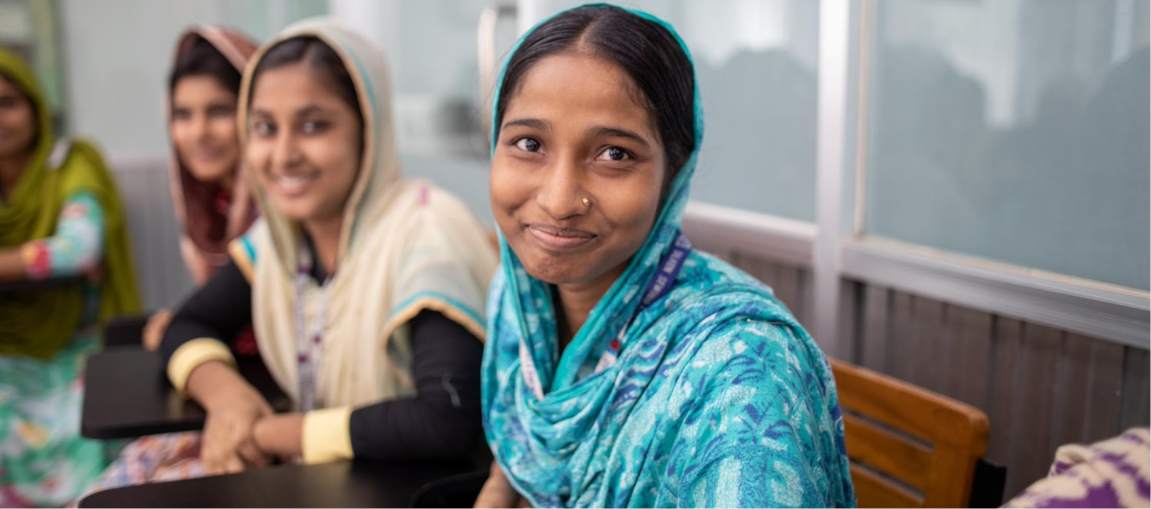Committees & CoPs

Participants from The Empowering Women Workers in Bangladesh training, funded by Cotton On Group, based at the factory of Silken Sewing – a ready-made garment factory in Bangladesh. Together, CARE and Cotton On Group are providing bespoke training modules to 2,200 garment factory workers, predominantly women, across three of the Group’s supplier factories in Bangladesh. Photo: Jorja Currington/CARE.
Expert Advisory Committees
Expert advisory committees support the achievement of ACFID’s strategic goals by providing advice, leading ideas, informing policy positions and shaping work priorities. Reporting to ACFID’s CEO, expert advisory committees are primarily made up of specialists from member agencies but may also include external advisers such as academics or consultants. These committees are; the Development Practice Committee; the Humanitarian Reference Group; and the Public Engagement and Campaigning Committee.
Development Practice Committee
The Development Practice Committee (DPC) is a specialist group of learning and development practitioners from the not-for-profit sector. Its objective is to enhance the development sector’s relevance, effectiveness, efficiency and sustainability by leading good practice within the sector; undertaking applied research and development of tools and processes; providing relevant advice to ACFID on key issues around development effectiveness affecting the sector; and engaging with DFAT on development effectiveness practice.
Humanitarian Reference Group
The ACFID Humanitarian Reference Group (HRG) is the independent voice of humanitarian agencies in Australia. The HRG is made up of ACFID’s members with significant operational involvement in humanitarian response, who have the capacity to contribute to the activities of the HRG It provides a mechanism for ACFID members working in international humanitarian assistance to share information, strengthen coordination, advocate to strengthen humanitarian response and engage in policy dialogue with DFAT. HRG members work across a range of areas including protracted crises, disaster risk reduction, humanitarian effectiveness, civil-military engagement, and protection.
Public Engagement and Campaigning Committee
The ACFID Public Engagement and Campaign Committee (PECC) is designed to support the realisation of ACFID’s vision, and the delivery of the Advocacy Agenda, as set out in the Strategic Plan 2020-2025. The PECC’s primary objective is to unite ACFID members to engage the public and to campaign for better international development by Australia.
The PECC aims to achieve this objective through championing the work of the ACFID membership and the impact of the Australian Development program to the Australian public.
Communities of Practice
A Community of Practice (CoP) is a group of people who come together to share, learn and collaborate. They are held together by a common interest in a topic, and are driven by a desire to solve problems and develop a body of knowledge together. For ACFID, CoPs play a vital role in contributing to our broader change agenda and to achieving ACFID’s aim to see our members as influential agents of change and leaders in development, humanitarian practice, NGO effectiveness, and accountability.
Further information on CoPs can be found here.








